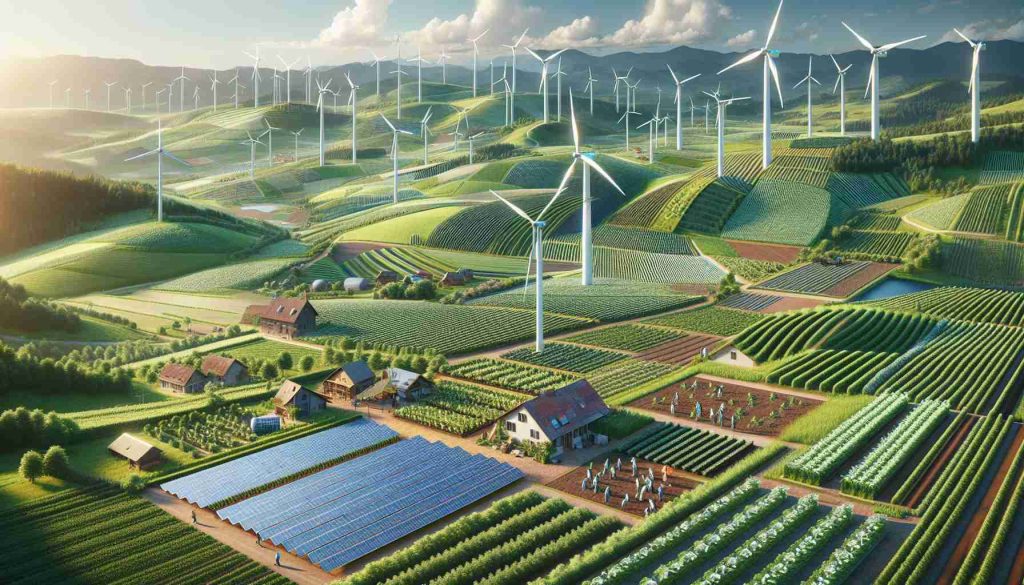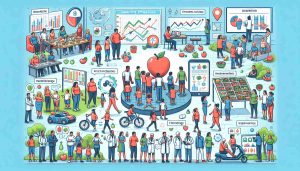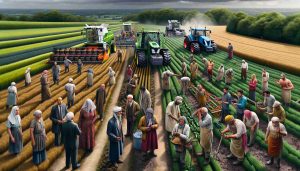The Rise of Sustainable Agriculture in European Countries
3 min read
In a quaint village nestled in the European countryside, an eco-friendly farm shop has emerged as a beacon of sustainability and health consciousness. Dedicated farmers work tirelessly to cultivate fresh, organic produce that satisfies the growing demand for healthy alternatives in today’s society.
Despite the serene facade of the farm shop, the labor-intensive process of harvesting and preparing the crops is a grueling task that goes beyond what meets the eye. From dawn to dusk, farmers diligently toil in the fields, meticulously picking and sorting vegetables to ensure top quality for their discerning customers.
As the sun sets on another day of hard work, the farm shop stands as a testament to the dedication and passion of those who strive to promote sustainable agriculture. Their commitment to preserving the environment and promoting healthy living resonates not only with the local community but also with a broader audience seeking to make conscientious choices in their daily lives.
The rise of sustainable agriculture in European countries signals a shift towards a greener, healthier future for generations to come. By supporting initiatives like the eco-friendly farm shop, individuals can play a vital role in promoting a more sustainable and eco-conscious way of life.
The Rise of Sustainable Agriculture in European Countries: Unveiling Further Insights
In exploring the realm of sustainable agriculture in European countries, several key questions surface, shedding light on the nuances of this vital topic:
1. What are the main drivers behind the rise of sustainable agriculture in Europe?
– The push for sustainable agriculture in Europe is fueled by concerns over environmental degradation, climate change, and the desire for healthier food options. Additionally, consumer demand for transparency and ethical practices in food production plays a significant role.
2. How do European governments support sustainable agriculture initiatives?
– Various European governments offer subsidies, grants, and incentives to promote sustainable farming practices. These can include financial support for organic certification, conservation programs, and research into sustainable farming methods.
3. What are the key challenges and controversies associated with sustainable agriculture in Europe?
– One major challenge is the economic viability of sustainable farming methods compared to conventional practices. Controversies can arise around genetically modified organisms (GMOs), pesticide use, and the impact of large-scale industrial farming on sustainability.
Advantages of sustainable agriculture in European countries include:
– Environmental Benefits: Reduced chemical usage, biodiversity preservation, and improved soil health.
– Health Benefits: Access to fresh, nutritious produce free from harmful pesticides.
– Economic Benefits: Building resilience in the face of climate change and enhancing long-term productivity.
Despite the many advantages, there are also disadvantages to consider:
– Higher Costs: Initial investments in sustainable agriculture practices can be more expensive.
– Lower Yields: Sustainable farming methods may not always deliver the same yields as conventional practices.
– Transition Period: Farmers may face challenges when transitioning from conventional to sustainable practices.
For those interested in delving deeper into the world of sustainable agriculture in Europe, websites like European Commission provide valuable resources and insights into EU policies and initiatives supporting sustainable farming practices.
The ongoing rise of sustainable agriculture in European countries presents a promising path towards a more environmentally friendly and health-conscious future, where individuals, communities, and policymakers collectively contribute to a greener world.






